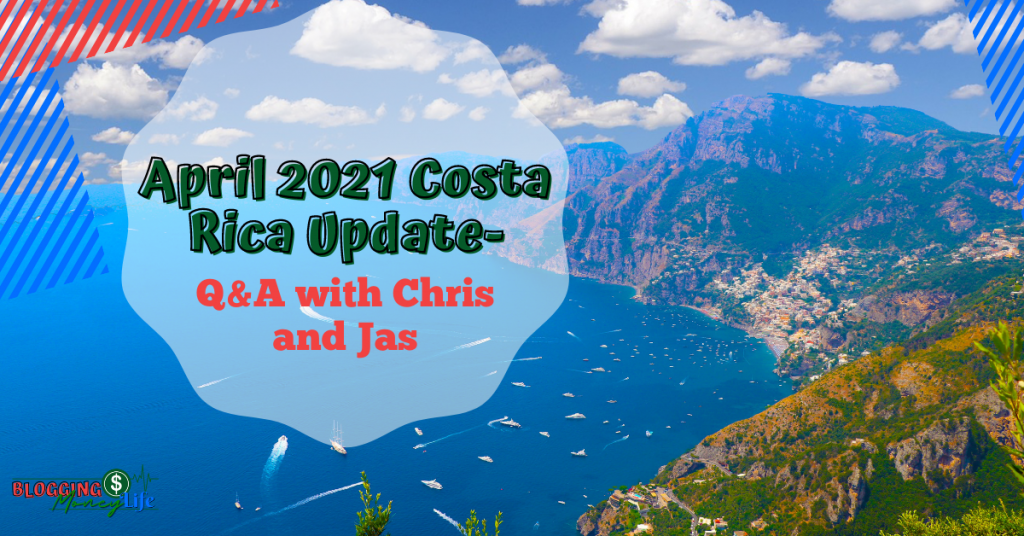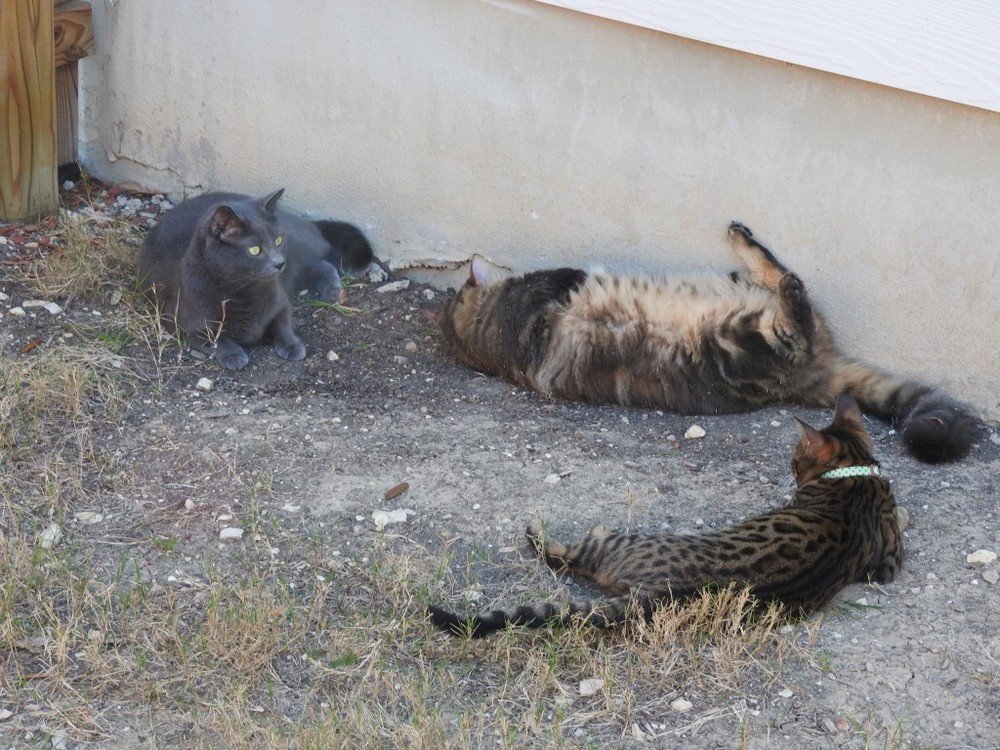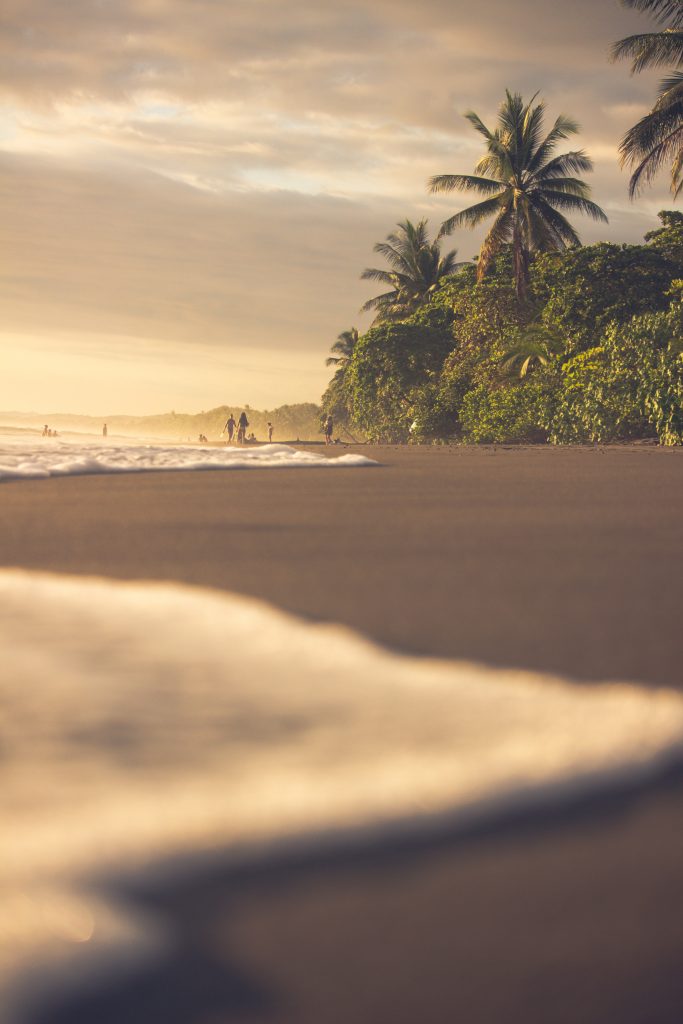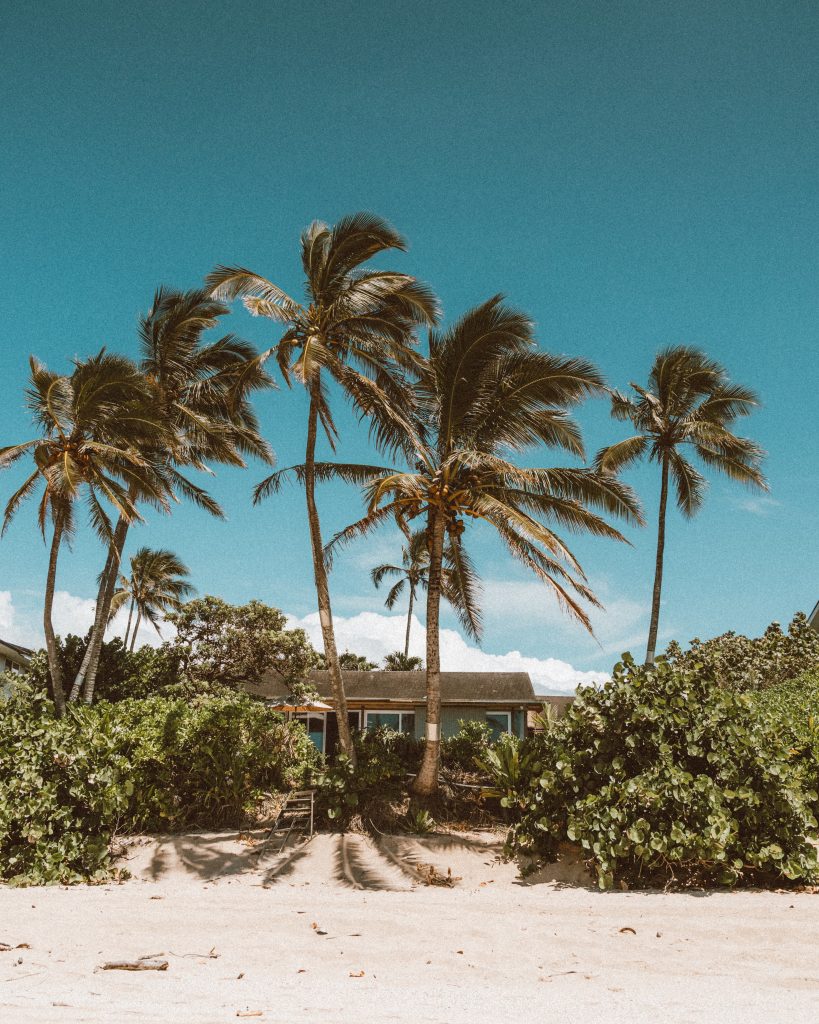April 2021 Costa Rica Update – Q&A with Chris and Jas

We are excited to talk to you all about our Costa Rica move. We wanted to spend a little time introducing ourselves to those who may not know us and answer some questions you guys sent. So we hope you’ll enjoy this quick Costa Rica update.
We are both initially from Ohio. Within the past year, we’ve been bouncing back and forth about moving abroad. We’ve finally concluded that, yes, we’re going to move abroad!
We ended up picking Costa Rica as the country we’re moving to.
Since we decided to move to Costa Rica, we have received several questions from friends and family members about the move. We have a few of these questions we’ll cover in this post.
You may wonder what it’s like for that process to move to Costa Rica from the States. Or if you’re just curious about something a little unconventional, you’ve come to the right place.
We will discuss this “We’re Moving to Costa Rica” update and answer those questions now.
What are you going to do for money?
Chris: I’m currently working as a construction manager for a custom home builder now. I will not be doing that in Costa Rica. I won’t be working digitally. That’s not something I can do digitally.
When you first move to Costa Rica, you cannot work until you become a permanent resident. After that, they won’t grant you any type of working visa. So, I can’t work within the country or take money out of their economy, but we can work digitally.

So, Jas is actually keeping her current job. She’s working digitally from Costa Rica. I’ll let her talk about that. We have started a new blog together called Blogging Money Life.
I will be working on Blogging Money Life full-time. And I’ll probably be making some money as a professional surfer.
Jasmine: Chris is right. I know that I should be able to take my job to Costa Rica, which is nice because I work remotely right now. I’m a digital marketer, which is great because I can do it anywhere.
One of the big reasons we decided to go to Costa Rica, actually when it comes to working, is that we are still in the central time zone. The most significant difference between our time zone and Costa Rica is that they don’t observe daylight savings.
I know there’s a portion of the year where we will be in Mountain Standard Time, I believe, when daylight savings happens, but the time zone is so close that it’s really easy to still work even if I want to work in Eastern time zone hours with the company or Pacific Standard time-zone hours. Still really good.
So, I should be able to take my job with me to Costa Rica, which is nice. As Chris mentioned, we will also be blogging in Costa Rica, which is excellent.
But we’re also going to do real estate investing. So, a fun fact for people who don’t know, Chris and I are also real estate investors. We own few properties in Texas .We want to do some kind of real estate in Costa Rica.
Chris: There’s still a lot to figure out. The market is much different in Costa Rica than here in the United States. The little that I know about the market – houses do not appreciate in Costa Rica as well as they do here. So, we’re thinking more like doing Airbnb and getting a couple houses, small units, on the beach or close to the beach and renting those out Airbnb style.
Jasmine: I’m looking forward to that too. That will be a whole new learning for us regarding different real estate and understanding that part of it for sure. So, cool.
What are you going to do with your pets?
Chris: They’re coming with us. Jas is working behind the scenes with getting those pets over there but there are different things she had to do or has to do. First, she had to get them all taken to the vet for unique shots that are required within Costa Rica. And then she has to file specific paperwork certifying that these cats have received their shots and they’re not going to bring any kind of crazy disease over there.

Jasmine: For those who don’t know, we have two cats, Sydney and Katniss. They are our babies. They’re definitely coming with us. There are some steps you got to take to make sure that they are vaccinated.
I know once we have a date, which we don’t have an exact date yet for when we’re going to leave. We’d have to call the airport and tell them we’re bringing our cats.
They usually have that in the airport to check on them once we get to Costa Rica to ensure they’re good to go and see all of our paperwork. We can’t do that until we have our date and plane tickets.
Where will you live?
Jasmine: This is something that I feel we spend a lot of time trying to figure out just because it’s beautiful everywhere. There are so many great places in Costa Rica.
You have a mountainous area, a beachy area, and a city area. I love all those things. So we decided on the beachy area as far as where we wanted to go.
And then, we work with Sarah Elena who’s our Costa Rica mentor. She recommended a place called Playa Hermosa to us. It’s a small beach town not far from Jaco. We know that that’s where we’re going to start at least.

Chris: Yeah. We’ll get a place to kind of base ourselves out of and spend the first six months to a year traveling around, up and around and figure out where we actually want to settle down, put down some roots. I definitely want to stay close to the beach.
Jasmine: I do too. I want to be in a place where it’s easy for me. If I want to go on a nice hike or a little mountain, or if we want to go to a city to go shopping or something, I want to be able to go there too. Ideally, close to the beach but is able to easily drive to those places you want to go and want to check out too.
Chris: Not too far from International Airport.
Why are you moving to Costa Rica?
Chris: The simple answer is because we can. I mean, we’re able-bodied. As Americans, you have those passports that let us go to many places, many other countries in the world. It may sound shocking and maybe difficult but when you break it down into baby steps, it really doesn’t seem like that big of a deal.
Jasmine: It’s not that far either.
Chris: Yeah, it’s not that far. I mean, say you’re flying out of Florida. You can get there in as little as three hours for a $300 round-trip ticket.
Jas mentioned earlier it’s in the same time zone. So, it’s not that far. The steps are simple when you just kind of break them down and take it one step at a time.
And there’s other reasons too. It’s a bit of excitement. We’ve been in Texas for 10 years and kind of fallen into the same old dull routines. There’s the excitement that comes with moving to a new country.
There are going to be new cultural experiences for us. The main language there is Spanish, so it’s going to force us to learn another language and get good at it. They do speak plenty of English over there.
So, that’s good. We’ll also be looking at the United States from kind of an outsider’s perspective. I mean, not total outsider perspective but we’ll be kind of looking through the windows as someone who used to be inside, I guess.
Jasmine: Oh, yeah. Those are good reasons. I think Costa Rica too just captured us. When we went to visit a couple of months ago, I remember before we even talked about moving to Costa Rica.
We passed some of the real estates and saw some prices. I go, “Let’s just look at it and just see what it is.” Well, I remember thinking it was super affordable.
Chris: I remember sitting down. We went there with two other couples. We’re sitting down eating breakfast one morning and we’re thinking or I was thinking, what would we have to do to live here?
We’re just kind of spitballing the idea. It really wasn’t much. It was super affordable. And like, “Man, if this is something we wanted to do, we can make it happen.”
Do you know the cost of living in Costa Rica?
Chris: I mean, it’s more affordable. The United States dollar is stronger over there. Yeah, it’s stronger there.
Cost of living? If you want to live like an American, you’re going to pay American prices.

If you want American snacks like Doritos or Snicker bars or American brands in the grocery stores, like if you got a favorite brand of cereal here and you don’t want to eat the Costa Rica version, you’re going to pay American prices and maybe even a little more for that stuff because it’s all imported.
But if you want to eat fresh, which is something we’re excited about, and go to the farmer markets and stuff, that fresh food is much more affordable.
Labor is super inexpensive there. Most expats that I’ve been talking to seem to have a housekeeper and a gardener. The average wage that they’re charging, I guess people are saying $5. I have to look into this more but $5 an hour for a house cleaner and gardener is roughly the standard, or maybe even a little bit above the standard wage.
Jasmine: It ranges. I’ll sum it up as far as cost of living. I know when we were looking, what I’ve seen most was between $1,000 and $2500 a month for cost of living but to Chris’s point, it really does depend. Some people, they spend way more than that a month.
Chris: If you’re paying $1500 a month, or if you’re paying $1200 a month for a 1500 square foot home that’s on the beach, man, you’re not going to find that in the United States. No way. So, I guess it’s hard to compare apples to apples.
We set a budget for ourselves actually. We’re going to live on a $2500 a month as a couple starting out over there until we figure out exactly how it’s going to work for us, but from our research that will actually be plenty of money to live off, which is a fraction of what we’re doing here.
Do your cats have to quarantine in Costa Rica like they had to in Australia?
Chris: I haven’t heard anything like that. I follow a number of Costa Rica expat groups and people are constantly talking about their pets but I haven’t heard anything about that. Wow, they got to quarantine in Australia? That’s interesting.
Jasmine: That is interesting. I don’t know how you quarantine your pets. I haven’t heard of anyone saying they have to quarantine their pet but they do have to make an appointment with a vet to meet them at the airport.
You can’t take your cat or your pets out of the airport until they’ve been inspected by a vet. So, that’s all I know. That’s the closest thing to quarantining.
How will you cope with being so far away from family and friends?
Chris: That’s one of the reasons we chose Costa Rica. The runner-up country of Costa Rica was New Zealand. We chose Costa Rica over New Zealand because of its proximity to the United States.
And we’re in the same time zone. So, we’ll be able to make phone calls back and forth in real-time.

We’ll be able to travel back and forth fairly easily. Hopefully, people, friends, and family will come to visit us in Costa Rica. When we moved from Ohio to Texas, most of our extended family is in Ohio. We got many of our family members to move down to Texas.
A couple of her sisters, my sister moved down here. We already had our aunt down here. Our grandmother moved down here. Our uncle moved down here, so, maybe, everyone starts moving to Costa Rica.
Jasmine: Honestly, I think 2020 has proven to me that it is definitely possible to still maintain strong relationships with people even though you’re not physically with them. I think about a lot of my friends who I literally have not seen for a year or several months, six to eight months, and they live a city away or probably down the street and I still Skype with them, we text, we do video calls.
I’ve used every video platform possible this past year. Honestly, 2020 has taught me that my friendships are definitely deeper than having to physically be in front of people.
Are there Ubers in Costa Rica? How do you get around?
Chris: Yeah, there’s Ubers. Taxis, buses. I’ve never taken a bus but from what I’ve read it’s even a little more difficult to take buses in Costa Rica.
Maybe it has something with that Pura Vida lifestyle where the bus might show up 10 minutes early or might show up 10 minutes late. That’s kind of what I’ve been hearing. We plan on getting a vehicle.

Going back to the cost of living, vehicles are expensive there. You can expect to pay like twice as much for a vehicle in Costa Rica roughly. You can import a vehicle. The shipping really isn’t all that bad to importing a vehicle but right now the tax on the imported vehicles is super high.
You’re better off buying something there. Also, if you import a vehicle, you want to make sure they have a similar vehicle to that in Costa Rica if you don’t want to import like a Ford F150 and there’s no other Ford’s and you’re not going to be able to get parts to work on it.
Will there be a big difference in diet from what you’re familiar with in America?
Chris: Rice and beans.
Jasmine: You know what’s so funny? When we went to Costa Rica, one thing we noticed about the food there is pretty much everywhere we ate was like farm to table. I remember we knew the name of the chicken who laid our eggs every morning.
I’m a vegetarian so I wasn’t eating any meat anywhere else but I remember the hotel that we stayed at had its own garden. They had their own little thing of livestock. And they had a picture of our chickens. “Right here she laid these eggs for you guys this morning.”

So, I just thought it was so nice. And everywhere we went, everything was fresh and really good. And lots of fruit, lots of vegetables, and everything.
Chris: Honestly too that’s part of the change we’re looking for is a healthier lifestyle and healthier eating. I think the farm-to-table in farmer market food is maybe easier to get there, more widely available. I think that will be a change we can make fairly easily.
Does Costa Rica have any specific quarantine rules because of COVID?
Chris: I’m not so sure about quarantine rules. If you’re getting on a plane or you’re crossing the border over to Costa Rica, you do need to have COVID travelling insurance. You don’t need a negative COVID test.
A big portion of their economy, I believe, is based on tourism. I think coffee is another big part of their economy and tourism. They really started hurting with COVID and these travel restrictions.
I think that’s why they opened up their country. I kind of get the idea that maybe they’re a little more relaxed in Costa Rica for COVID restrictions, but also too, I think people over there are spending more time outdoors than we do in the United States. So, it may not be as bad over there.
I really haven’t heard a whole bunch about COVID over there but Jas and I are both vaccinated.
Do you have an idea of what the move expenses will look like? Travel, a new place, necessary documents?
Chris: Yes. For a new place we have an $800 monthly budget for our new apartment. Sara Elena, our Costa Rican consultant is helping us find an apartment with the criteria here for that budget. She says it’s doable so yeah, hopefully, we can find that.
Travel. Our tickets are probably going to be like 600 bucks a piece. We have to buy round trip tickets too because we’re not going to have our residency right away.
We actually have to be in the country to apply for residency. They’re going to want to see that we’re going to leave the country within 90 days. So, we got to get a return ticket. Hopefully, we can find something that’s refundable for that return.
Documents. I think our lawyer, he’s costing us all-in lawyer fees, the document preparation fees and all that stuff. I think that’s probably going to be like five grand total and somewhere around there.
Our consultant, I don’t want to say her pricing because it may have gone up and may have gone down but she was fairly affordable. I think she was between $2000 to $2500 range. Maybe a little less but totally worth it. Both the lawyer and the consultant, we’d be flying blind without them.
Jasmine: Especially because some of our banking paperwork is in Spanish.
Chris: Yeah. Most of it was in Spanish. Fairly intimidating signing papers in a different language. There are all kinds of cool.
I just downloaded app on my phone. I can take a picture of a document in Spanish and it translates for me.
And then we have a good friend who’s fluent in Spanish. I think Spanish was her first language. We had a video chat with her the other day, she helped us. We have like 20 documents.
Jasmine: She spent her afternoon helping us.
That’s it. Those are all the questions we have. We’re going to do another Q&A for Costa Rica in two months. If you have more questions along the way, just let us know.
